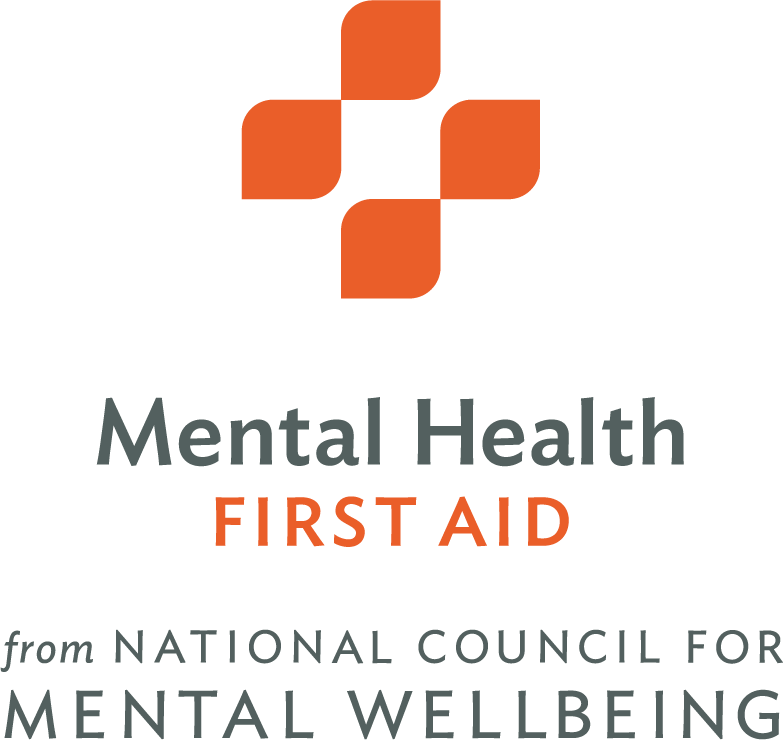In response to our nation’s mental health crisis, NRCI provides Mental Health First Aid (MHFA) training to the Chicagoland area. This groundbreaking skills-based course teaches people how to identify, understand and respond to signs and symptoms of mental health or substance use challenges. Similar to physical First Aid and CPR, Mental Health First Aid helps you assist someone experiencing a crisis until professional assistance is obtained or the crisis is resolved.
One in five Americans has experienced mental illness, and the pandemic has dramatically increased depression and anxiety, but many are reluctant to seek help or don’t know where to turn for care. Unlike physical conditions, symptoms of mental health and substance use challenges can be difficult to see. Friends and family members may find it hard to know when and how to step in. As a result, those in need of mental health services often do not receive care until it is too late.
Mental Health First Aiders learn a 5-step Action Plan that guides them through the process of reaching out and offering appropriate support. “It’s never been more important for our communities to talk about mental health and substance use,” says Chuck Ingoglia, president and CEO of the National Council for Mental Wellbeing, which helped bring Mental Health First Aid to the U.S. in 2008. “Mental Health First Aid is breaking down barriers and stigma so that together we can learn how to better support one another. Without mental health, there is no health”.
Since its introduction, Mental Health First Aid has become a full-blown movement! More than 2.6 million people in the United States are certified Mental Health First Aiders, and that number is growing every day.
For more information or to schedule a Mental Health First Aid training for your group, organization or community, please contact us at NRCInstitute@thechicagoschool.edu. Training is offered in person and virtually and CEUS are available.
NRCI MHFA Offerings
Mental Health First Aid courses are tailored to address the needs of specific populations, including adults helping youth, teens, veterans, older adults and fire and EMS. Learn more about Mental Health First Aid.
Adult Mental Health First Aid (MHFA) is a skills-based training that teaches people how to identify, understand and respond to signs and symptoms of a mental health or substance use challenge in adults ages 18 and over.
All programs offered in person, virtually or in blended format.
Youth Mental Health First Aid (YMHFA) is a skills-based training that teaches parents, family members, caregivers, teachers, school staff, peers, neighbors and other adults how to identify, understand and respond to an adolescent (ages 12-18) who may be experiencing a mental health or substance use challenge.
teen Mental Health First Aid (tMHFA) teaches teens in ages 14-18, how to identify, understand and respond to signs and symptoms of a mental health or substance use challenge among their friends and peers. The program equips young people with the skills they need to take care of their own mental health and to support peers, including how to get the help of a trusted adult.
(Requires advance training of supportive adults in YMHFA)
Mental Health First Aid for Fire and EMS is a skills-based training that teaches firefighters and EMS personnel how to identify, understand and respond to someone experiencing mental health and substance challenges. The program focuses on the unique experiences and needs of firefighters and EMS personnel, including how to intervene in the field and among their peers.
Mental Health First Aid for Public Safety is a skills-based training that teaches public safety personnel how to identify, understand and respond to someone experiencing mental health and substance challenges. The program focuses on the unique experiences and needs of public safety personnel, promoting open dialogue, reducing stigma, and encouraging officers to seek support when needed.
Mental Health First Aid for Corrections Professionals is a skills-based training that teaches Corrections Officers and their coworkers (chaplains, healthcare workers, administrators and others) how to recognize and respond to signs and symptoms, connect colleagues with appropriate workplace and community resources, and encourage self-help strategies to promote well-being.
Mental Health First Aid for Military Members, Veterans and Their Families is a skills-based training that teaches people how to identify, understand and respond to a veteran or service member experiencing a mental health or substance use challenge, with a specific focus on the cultural factors related to military life.
Mental Health First Aid for Older Adults is a skills-based training that teaches participants how to identify, understand and respond to someone experiencing a mental health and substance challenge. The program addresses mental health challenges unique to people age 55 and older.
Mental Health First Aid for Higher Education is a skills-based training that teaches participants how to identify, understand and respond to someone experiencing a mental health and substance use challenge. The program has a specific focus on the unique challenges faced by college students and is designed for students, staff and faculty.


